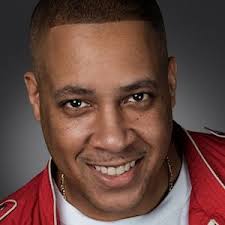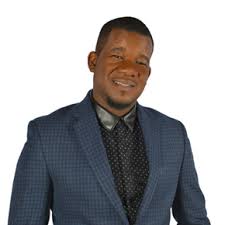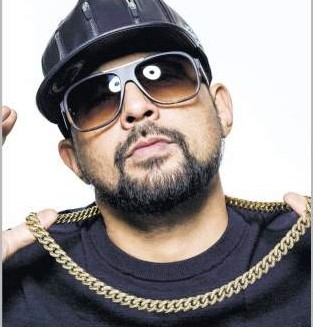By Yasmine Peru – Senior Sunday Gleaner Writer—

Supercat and Ninja Man at Sting 1991.—
Easily numbered among dancehall’s mega-successful artistes, and with an international pull and presence that has seen him collaborate with the best, from the likes of Beyoncé to Blu Cantrell, Sean Paul is never, ever considered controversial. But the Grammy award winner has come out swinging against an element that is almost endemic to dancehall: clash culture. This poster boy for the genre is taking swipes at the annual clash haven, Sting; phrases like ‘Do it for the Culture’, which he questions; and culture vultures.
In a recent interview with the US-based DJ Epps, the multiplatinum-selling, standard-bearer called out dancehall’s divide-and-rule, crab-in-a-barrel mentality and made statements, which he himself admitted would be controversial. “The statement I made to DJ Epps is really heartfelt. I carried that feeling about our clash culture for a long time, but not knowing what exactly to say about it or how to say it and the time to say it,” he shared with The Sunday Gleaner.

In response to DJ Epps’ question about the Verzuz battle with Beenie Man and Bounty Killer, an enthusiastic Sean Paul said he was “mad proud” of the performance from the two dancehall giants. But the bee in his bonnet seemed to be that the camaraderie and genuine love and unity displayed on that stage is not a regular feature of dancehall culture, and as a result, the power of the genre is diminished.
“The movie Django reminds me of our clash culture. Two youths fight, and then a guy gives one the hammer and says finish him. That reminds me of clash. I don’t like that. If we perpetuate it year after year to these kids, they are going to come up and do the same thing. Since slavery, we have been put up against ourselves, and we shouldn’t be doing that,” he said.

Sean Paul called out annual hardcore stage show Sting for the “slavery mentality” that it fosters. “Every year in Jamaica, we grew up with Sting. The basis of the entire show was to clash each other and do the most hard-core performance. This is slavery mentality to me, and I just don’t want to do that. In our culture, we had Shabba and Ninjaman clash and Ninjaman and Super Cat, and I was a fan of all those people. I see people in the street who seh that Shabba badder and stab up each other over it. I don’t want to see none of that. The black, gold, and green, those are my colors,” the budding elder statesman of reggae and dancehall told DJ Epps.
He admitted to The Sunday Gleaner that he himself is caught up in a dilemma, as there is both good and bad in the culture. “As I said in the interview, we all have benefitted from clash culture. It helps everybody – the selectors who clash, upcoming artistes who learn from the mistakes others might make or the triumphs he sees, the same artistes who are clashing. It sharpens us a lot and makes us very potent and very creative emcees and musicians.”

He noted that the point can be argued that in sports, “we are pitted against each other”, so what’s the big deal? “Music has a spiritual component to it. As Capleton seh, music is a mission, not a competition. There shouldn’t be the arrogance of ‘I am the best’ because we are all good at what we do.” He shared that he posted a picture of artiste Papa San on social media because he felt like “bigging” him up, and immediately, there were the comparisons to Stitchie and the ‘who is the better artiste’ narrative. “Why do we, when bigging up one person, have to deny the other of their glory?” he quizzed.
‘DEM BWOY DEH’
Sean Paul, like many others before him, lamented the lack of unity and also the lack of a positive message. “Dancehall music hasn’t done what reggae music did in terms of talking against apartheid in South Africa, but we a talk bout ‘dem bwoy deh’? Who is ‘dem bwoy deh’? Nuh we? It’s divide and rule. It’s very crab in a barrell, and it’s the Willie Lynch syndrome,” he told The Sunday Gleaner.
He related an experience of when he was at an event and a fan asked him a question that showed the “divided state of mind”. The question was, “‘Like how you is the only man who do a song with Alkaline and Squash, how yuh feel about the feud?’ I told him that it’s a Jamaica flag me represent every time.”

He added: “We are such a powerful force, yet so divided, that it leaves this big space. It’s something that yuh don’t recognize. It was fun to go to Sting every year and see one deejay kill another. But is it fun to watch your sibling being killed? And then we are going to say Black Lives Matter and go and protest for George Floyd. And it’s good to protest. We used to do it for Mandela, but ah don’t see anybody in Jamaica protesting for Mario Deane,” he said.
Turning his microscope on the international scene, he pointed out that dancehall music helped to start music like reggaeton and influenced the changes in Afrobeats, yet we don’t get the accolades. “Look at all those pop people. I don’t see a lot of those pop cats saying, ‘This is my dancehall single’. If I were to do country and western without saying this is my country and western single, Willie Nelson would come for me. You have to say it,” he emphasised.
He made a plea for dancehall to unite at every level – the managers, the artistes, the publicists, the producers – because that is the only way things will change. “But instead we are here squabbling among each other, so they say, ‘This is good. Let’s take it’.”


You must log in to post a comment.